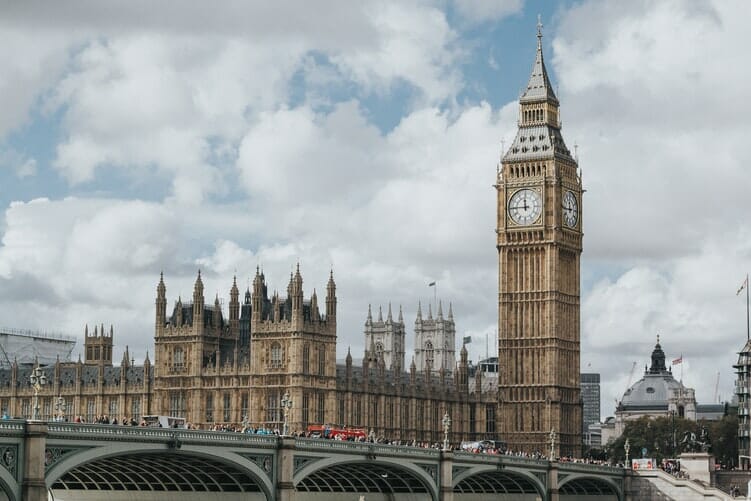In the run up to the General Election, then Shadow Secretary of State for Science, Innovation, and Technology, Peter Kyle, promised to end the war against universities. Shadow no more, Kyle has subsequently declared the war over. This is supremely welcome news.
The new Labour government has rightly recognised that universities are vital engines of innovation and growth and are key to tackling all five of the missions that are at the heart of its agenda. It is universities that are doing the research that can and will make Britain a ‘clean energy superpower’ and that can and will train the staff and build the research base to improve the NHS, serve the justice system, and raise education standards.
But with the war over, if we are to ‘win the peace’, there is an urgent need to stabilise, rebuild, and re-open our universities to the world.
With no increase in the home undergraduate tuition fee since 2017, there is now a gap of over £3,500 per student to cover the cost of teaching and supporting UK students. Collectively, UK universities are running a £1.7 billion deficit on teaching and a £5 billion loss on research, according to Universities UK.
Universities are in very real trouble. According to UCU, 70 universities are currently, or have recently, engaged in redundancy or restructuring processes, and the Office for Students states that 40% of higher education providers will report deficits for 2023/4.
But the OfS’s understandable focus on deficits, cash balances, net liquidity days and passing ‘going concerned’ audits fails to register the scale and scope of the savings that universities have to enact to avoid or minimise deficits and to maintain sufficient cash and liquidity. A widely misunderstood element of the 2012 fee settlement is that capital funding for universities was (with some small exceptions) removed. Universities would henceforth be expected to fund investment in their estates and infrastructure and in student housing through the sustained operating margins that their fee income would support.
But as fee income has lost real value, maintaining sufficient cash and net liquidity, means cuts – both across whole institutions and in carefully targeted ways – by freezing recruitment, closing programmes and, in some cases, whole departments. It also means pausing and cancelling capital projects, storing up significant problems for the future. Buildings will not be maintained. RAAC will not be removed. Climate adaptations and resilience will not be achieved. IT systems will not be updated. Scientific research and teaching facilities will fall behind our competitors. Campus infrastructure – digital and physical – will fail.
Last year, I was one of three vice-chancellors invited by HEPI to write a manifesto for higher education for the upcoming general election. In my manifesto, I argued that universities should be seen as a public good, and I proposed an independent, expert-informed, comprehensive review of university funding and student support using the methodology of a citizens’ assembly. In the medium term, I remain convinced of the merits of a review of this scale, scope, and nature, bringing together students, university staff, parents, employers, and taxpayers.
But action is needed now, before such a fundamental review can take place and be implemented, and in my manifesto I proposed three ways in which public funding could be directed to universities and students, without fundamentally changing the current funding system.
I set out the case for a COVID generation student premium for home undergraduates to enable universities to respond to a generation whose learning, skills and personal development have been profoundly disrupted by the pandemic, with enhanced support for students from disadvantaged backgrounds.
I also suggested the payment of mental health and well-being support grants for every home undergraduate and funding to establish university clinics and research-led partnerships with the NHS to address the soaring levels of mental health problems amongst all young people (students and non-students).
And I outlined a new way of approaching student maintenance that would differentiate between loans for fees and maintenance in reporting the RAB charge. (The Resource Accounting and Budgeting (RAB) charge is the estimated cost to the Government of borrowing to support the student finance system. It is based on future loan write-offs and interest subsidies). I pointed out that the RAB charge for maintenance loan write-off is not the cost of educating students and is not paid to universities – it is the cost of a social policy that is about addressing socio-economic disadvantage. The ability to write off a much higher RAB charge for maintenance loans than for student fees means that maintenance loans could and should be immediately increased to address the serious poverty that many students are facing.
The need for each of these three interventions has not decreased over the past year, and they remain sound policy suggestions.
One thing my manifesto didn’t mention was the need to end the hostile rhetoric against international students that continued to escalate over the past year, which Secretary of State for Education Bridget Phillipson so warmly and eloquently did in a recent video.
But positive talk is not enough. The financial peril facing UK universities that have mounted since I wrote my manifesto has been exacerbated greatly by the introduction in January 2024 of the ban on taught international students bringing their families with them whilst they study in the UK. This policy of the previous government urgently needs to be reversed.
A rarely spoken truth is that universities’ research, teaching, innovation, and civic activities are based on fundamental financial interdependencies and cross-subsidies. International postgraduate students are the glue here. Their fees are not just welcome but essential; it is their presence in our universities that makes courses in many areas of advanced study in science, engineering, global languages, social science, and the professions viable. The large drop in international postgraduate students experienced across the sector this autumn will very soon threaten UK universities’ ability to offer a wide range of strategically important subjects. This will not only reduce choice for home students but will have the effect of undermining the UK's ‘sovereign capability’ in higher-level skills.
Moreover, there is an important equality and international development argument for ending the ban on dependents. At Sussex, we know that international Masters students from less wealthy backgrounds and from the global south tend to come to the UK to study when they are older than students from more advantaged backgrounds, and by this time they very often have families. This is particularly the case for women, most of whom will not leave home to study without their children.
There is clearly an ethical argument here, and there is also enlightened self-interest.
Do we really want to be a country that closes the door to all that our universities can offer to students, especially female students, from the global south and from less advantaged backgrounds, who are making huge sacrifices to come to the UK because we have not worked out a way to report our net migration figures to distinguish international students from those coming to the UK to permanently make their homes here?
And can we really afford to restrict access to our universities in this way? In a globally interdependent world in which the UK’s influence is waning and which is experiencing increasing levels of geopolitical conflict, the more future leaders and global citizens benefit from the world-class education UK universities offer, the better. Development Studies at Sussex, for instance, has been ranked number one in the world by the QS World University Rankings in each of the last eight years, and the global flow of people and ideas through Sussex, as through all our other universities, generates vital ‘soft power’ for the UK. Our international graduates (and their families) invariably return home with a rich understanding of, and life-long warmth towards, the UK.
With the ‘war’ against higher education now officially over, we must recognize that our universities are part of the critical infrastructure for the future success of our country – national assets that we should fully re-open to the world.



